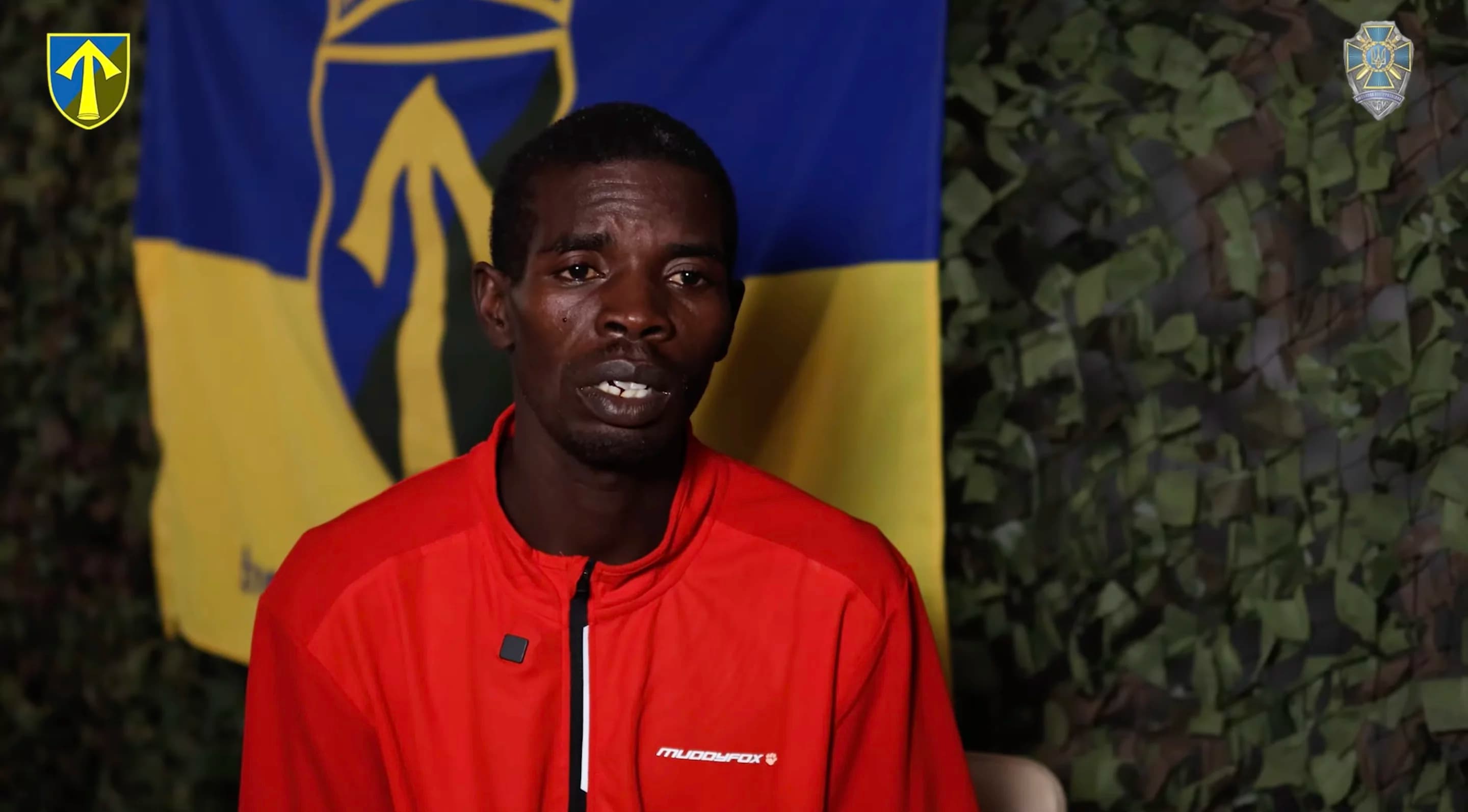We're loading the full news article for you. This includes the article content, images, author information, and related articles.
Reports of Kenyans fighting in the Russia-Ukraine conflict highlight the severe risks of human trafficking, prompting urgent diplomatic efforts from Nairobi to protect its citizens amidst ongoing hostilities in regions like Zaporizhzhia.

Nairobi, Kenya – The ongoing conflict in Ukraine continues to have far-reaching consequences, with recent reports indicating that several Kenyan citizens have been caught in the crossfire, allegedly trafficked into the war zone. This development coincides with intensified Russian military activity in Ukraine's southern Zaporizhzhia region, a territory partially occupied by Russian forces since the 2022 invasion.
The plight of Kenyans in the conflict underscores the dangers of deceptive recruitment schemes, as individuals are reportedly lured to Russia with false promises of lucrative employment, only to find themselves in combat roles. Principal Secretary for Foreign Affairs, Korir Sing'oei, has engaged with both Russian and Ukrainian ambassadors to address the issue, emphasizing Kenya's commitment to protecting its diaspora and advocating for a peaceful resolution to the conflict.
The Zaporizhzhia region, a vital industrial and agricultural hub in Ukraine, has been a focal point of the conflict since Russia's full-scale invasion in February 2022. While the capital city of Zaporizhzhia remains under Ukrainian control, a significant portion of the oblast, including its coastline, has been under Russian military occupation. Russia formally annexed the occupied parts of Zaporizhzhia in September 2022, following a disputed referendum, a move not recognized internationally.
The conflict has led to widespread displacement, with millions of Ukrainians internally displaced or seeking refuge in other countries. Civilian casualties have been substantial, and human rights organizations have documented numerous instances of alleged war crimes, including torture and arbitrary detentions.
Kenya's foreign policy on the Russia-Ukraine conflict is anchored on the principles of sovereignty and territorial integrity, advocating for a negotiated settlement. In response to the trafficking concerns, the Kenyan government is working with Russia to formalize a migration framework to ensure legal and transparent pathways for labor mobility, thereby safeguarding citizens from exploitation.
The Russian Federation has reportedly assured Kenya of its policy against the involuntary recruitment of non-nationals into its security forces. However, reports from Ukraine suggest that at least four Kenyans have been captured while fighting for Russian forces, raising questions about the effectiveness of these assurances and the prevalence of irregular recruitment networks.
Principal Secretary Korir Sing'oei has been at the forefront of diplomatic efforts, meeting with Russian Ambassador Vsevolod Tkachenko and Ukrainian Ambassador Yurii Tokar. Sing'oei has stressed that many Kenyans involved are victims of manipulation and trafficking, lured by false promises of employment. He has sought support from the Ukrainian Ambassador for consular access and repatriation of captured Kenyans.
The Directorate of Criminal Investigations (DCI) in Kenya has reportedly seized recruitment materials and travel documents, indicating ongoing investigations into these trafficking networks.
The involvement of Kenyan citizens in the Ukraine conflict poses significant risks, including potential loss of life, injury, and legal complications. For Kenya, it highlights vulnerabilities in migration channels and the urgent need for robust protective measures against human trafficking. The conflict's broader economic impacts, such as disruptions in global supply chains and increased commodity prices, have also affected Kenya.
While Russia denies official involvement in the recruitment of foreign nationals, the consistent reports of Kenyans fighting for Russian forces suggest a disconnect between policy and practice, or the presence of sophisticated, illicit recruitment operations. The exact number of Kenyans currently fighting or captured remains uncertain, as does the full extent of the trafficking networks involved.
On Tuesday, October 7, 2025, Principal Secretary Korir Sing'oei met with Russian Ambassador Vsevolod Tkachenko to discuss bilateral relations and the welfare of Kenyans in Russia. This followed a meeting on Monday, October 6, 2025, with Ukrainian Ambassador Yurii Tokar, where Sing'oei sought assistance for captured Kenyans. Kenya and Russia have agreed to work towards a framework for regular migration.
Observers will be closely watching the progress of the proposed migration framework between Kenya and Russia, and its effectiveness in preventing further irregular recruitment. The repatriation efforts for Kenyans caught in the conflict will also be a key area of focus. Furthermore, the ongoing military developments in Zaporizhzhia and other contested regions of Ukraine will continue to shape the humanitarian and diplomatic landscape.
Keep the conversation in one place—threads here stay linked to the story and in the forums.
Sign in to start a discussion
Start a conversation about this story and keep it linked here.
Other hot threads
E-sports and Gaming Community in Kenya
Active 9 months ago
The Role of Technology in Modern Agriculture (AgriTech)
Active 9 months ago
Popular Recreational Activities Across Counties
Active 9 months ago
Investing in Youth Sports Development Programs
Active 9 months ago